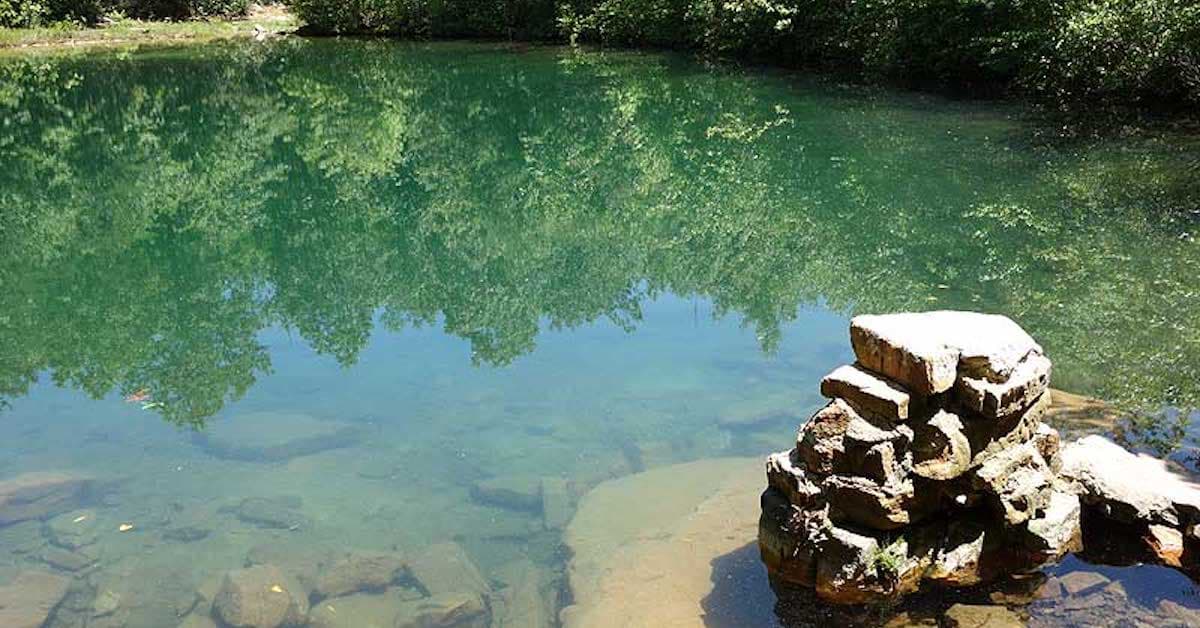Clarity
Clarity issues can arise from a number of reasons, but no matter what the cause, the effect is cloudy water that is not as appealing as clean, clear water. While it may be an aesthetics issue, poor water clarity can actually have some benefits as well, such as blocking UV light that submerged plants require for life and thus, limiting some of the plant growth. However, most pond owners would prefer clean, clear water in their ponds.
Both organic and inorganic materials can lead to poor clarity. The most common organic materials are planktonic algae and suspended organic matter such as organic compounds that are in the pond or have washed into the pond from surrounding areas. Research shows that pond water that is properly aerated can actually improve the settling of these organic compounds faster than ponds without proper aeration. If the clarity issues are living planktonic algae related, a chemical treatment may be required to remove them from the water column.

Clarity problems due to inorganic material is often clay related. Clay particles are very small, which makes them ideal for pond lining because they stack together so much more tightly than sand or rock particles. However, being so small, it also means they can stay in suspension within a pond for a very long time. The best way to clear it up is using a flocculent such as Alum to bind to the particulates and settle them to the bottom. Flocculants can also help bind phosphorus to the pond bottom ridding the water column of nutrients that sustain algae growth.
Finally, clarity may be due to stained water. If you are in an area with high tree growth or your pond water source comes from areas with a lot of vegetation around it, you could have high tanic acid in the water which stains the water a dark brown, almost like root beer. There is very little that can be done to change stained water. It will be clean, just not clear. Stained water is not all bad though. It is almost like having free pond dye in your pond.
pH
The pH level is a numeric value that indicates the relative acidity or alkalinity of the water on a scale of 0 to 14, with neutral at 7. Acidic water has pH levels below 7 and basic or alkaline water has pH levels above 7. Most lake and pond organisms prefer pH levels of 6.5 to 9. The pH levels in a given pond can fluctuate daily and is determined by complex relationships between carbon dioxide, hardness, alkalinity, photosynthesis, and respiration. If pH levels are not maintained, there could be negative effects in your pond.
Alkalinity or basic materials such as carbonates, hydroxides, phosphates, and bicarbonates are common in pond environments. Alkalinity is the buffering capacity of a pond or lake. This buffering capacity is important to allow pH levels to remain constant even with the introduction of acids from non-point source pollution and acid rainfall. Of pH levels are too acidic, lime is a common additive to bring the pH back to normal levels. Maintaining a healthy pH for your pond will help your pond organisms to thrive.
pH also changes throughout the day. As CO2 is released by plants at night, the pH lowers or becomes more acidic. During the daytime, as CO2 is used by plants, the water can become more alkaline or the pH raises. Buffering these pH swings using lime can help keep a more uniform pH level which will lead to better overall fish health.
pH can also effect bacteria and decomposition in a pond. Most bacteria cannot survive overly acidic water. Make sure to check the label, but if you pond is acidic, you may need to consider liming before bacteria treatments are started or at the very least lime to improve your resident bacteria populations.
Hardness
Water hardness is the measure of divalent ions in the water. Some common causes of hardness are calcium and magnesium carbonate. If you go through a lot of salt in your water softener in your home, and you pond is in your backyard, there is probably a good chance you have hard water in your pond as well. Hard water can decrease the effectiveness of certain algae and aquatic plant chemical treatments. It can also limit the growth of plankton in your pond and limit fish growth.
There are not a lot of practical solutions to hard water in your pond. However, a pond manager may need to formulate the spraying mixture with different amounts of surfactants to properly treat pond weeds if you choose a chemical approach.